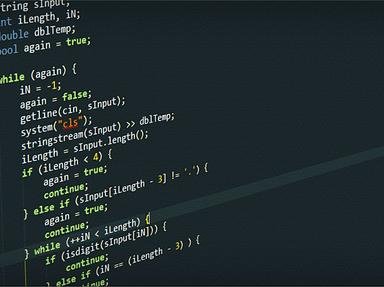Quiz Answer Key and Fun Facts
1. Who are the writers of the classic manual, "The C Programming Language"?
2. In general (other than within string constants like "Hello World" and a few obscure constructs), what effect does the amount of whitespace (spaces and tabs) between code elements have on a C program's compiled output?
3. Why are line numbers used when writing C source code?
4. How does one indicate that certain text is to be treated as a "comment" in the classic C language?
5. What will this piece (snippet) of C code print to the screen?
printf("Hello World");
/* This is a comment
printf("Hello Again");
This is another comment */
6. Is there a difference between i++ and ++i ?
7. Say you had a piece (snippet) of C code that looked like this:
if( i > 0 )
j = 5;
with both the if statement and the assignment on the same line. Now suppose that you insert a hard return (enter) right before "j=5;". What will change in the behavior of the code?
8. In C programming, what does i equal at the end of the following piece (snippet) of code?
i = 1;
i *= 5;
i += 3;
9. In the C language, how does one write the statement, "if i NOT equal to zero"?
10. When programming in C, what will j equal at the end of the following piece (snippet) of code?
i = 1;
j = 0;
if( i = 1 ) j = 3;
if( i = 2 ) j = 5;
Source: Author
mike32768
This quiz was reviewed by FunTrivia editor
crisw before going online.
Any errors found in FunTrivia content are routinely corrected through our feedback system.



